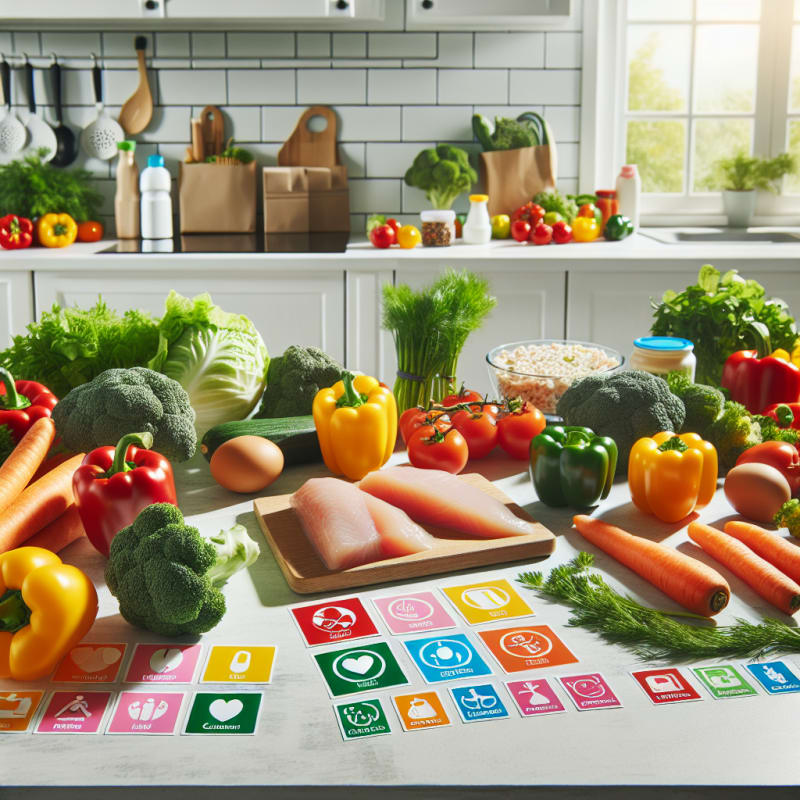Can Meat Really Prevent Cancer-Related Deaths? Unpacking the Latest Study & What It Means for Your Food Choices
Are you concerned about the impact of meat on your health, especially when it comes to cancer? A new study is stirring debate about whether meat consumption could actually help prevent cancer-related deaths. Here’s what you need to know, including the science, regulatory perspectives, and how smart food choices—powered by Food Scan Genius—can help you navigate the latest news and trends.
What Does the Controversial New Study Say?
Recent headlines, including a report by Study Finds, highlight a provocative new study suggesting that higher meat consumption may be linked to lower cancer-related mortality. The research, published in the journal Scientific Reports, analyzed global dietary data and found that countries with higher meat intake had fewer cancer deaths compared to those with lower meat consumption.
- Key finding: The study suggests a potential protective effect of meat against cancer-related deaths, challenging established dietary guidelines that recommend limiting red and processed meat.
- Context: The World Health Organization (WHO) and the U.S. Food and Drug Administration (FDA) have previously classified processed meats as carcinogenic and red meat as a probable carcinogen (NCI/NIH).
Is This Study Reliable?
While intriguing, experts urge caution. The study is observational and does not prove causation. Other factors—like overall diet quality, healthcare access, and lifestyle—could influence the results. The CDC and EFSA continue to recommend a balanced diet rich in fruits, vegetables, and whole grains, with limited processed meat intake.
| Authority | Current Recommendation |
|---|---|
| FDA (USA) | Limit red and processed meat; focus on lean protein, plant-based foods |
| EFSA (EU) | Promote variety; limit processed meat; require clear allergen and ingredient labeling |
| WHO | Processed meat is carcinogenic; red meat is a probable carcinogen |
Food Safety Alerts & Dietary News: What’s Happening Now?
- Product Recalls: The recent ground beef recall in the U.S. due to E. coli contamination underscores the importance of food safety vigilance, especially with meat products.
- Labeling Laws: The EU’s allergen disclosure rules are stricter than those in the U.S., requiring clear labeling of 14 major allergens, while the FDA mandates labeling of the “Big 9” allergens. This impacts consumers with sensitivities and dietary restrictions.
- Emerging Trends: Plant-based and keto diets continue to gain traction, with major brands reformulating products to meet demand for clean labels and sustainable sourcing (Food Dive).
How Food Scan Genius Empowers Smart, Safe Food Choices
With evolving research and frequent product changes, it’s challenging to stay informed. The Food Scan Genius app makes it easy to scan any food product and instantly check for:
- Allergens and dietary compatibility (gluten-free, vegan, keto, etc.)
- Ingredient safety alerts and recalls
- Country-specific labeling compliance (U.S. vs. EU regulations)
User Testimonial: “As someone with a meat allergy and a keto diet, Food Scan Genius saves me time and worry. I can scan any product and know instantly if it’s safe for me—no more guesswork!” — Jessica L., Berlin, Germany
Why Ingredient Transparency Matters
Understanding what’s in your food is crucial, especially with studies and regulations evolving. Whether you eat meat, follow a plant-based diet, or have food allergies, scanning products before you buy or consume them helps you make informed, confident choices.
Frequently Asked Questions
Does eating meat really reduce cancer risk?
Current evidence is mixed. While a recent study suggests a possible link between higher meat intake and lower cancer deaths, most health authorities (FDA, WHO, EFSA) recommend limiting red and processed meat due to established cancer risks.
How can I find out if a meat product is safe or recalled?
Check official sources like the FDA or EFSA websites, or use the Food Scan Genius app to scan products and get instant alerts on recalls, contamination, and ingredient safety.
Are food labeling laws different in the U.S. and EU?
Yes. The U.S. FDA requires labeling of 9 major allergens, while the EU mandates disclosure of 14. The EU also enforces stricter requirements for ingredient transparency and traceability.
Takeaway: Stay Informed, Stay Safe, and Scan Before You Eat
Food ingredient science is always evolving—sometimes in surprising ways. Whether you’re reconsidering your meat intake based on new studies or navigating food safety alerts and labeling laws, knowledge is your best defense. Download Food Scan Genius (scangeni.us) to scan, check, and choose with confidence—wherever you shop, whatever your dietary needs.
For more updates on food safety, dietary trends, and ingredient transparency, follow Food Scan Genius and make every bite a smart one.





